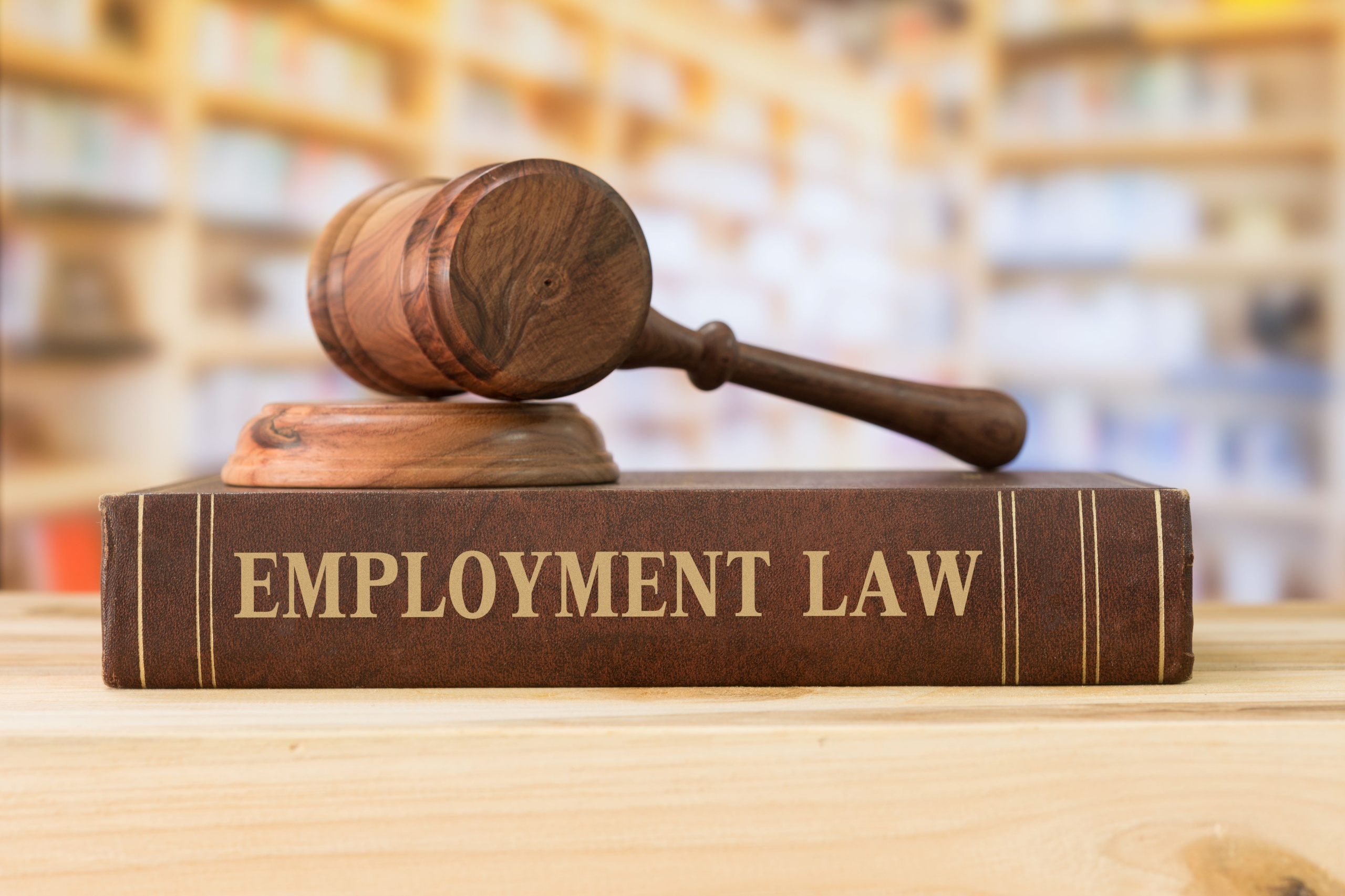The WARN Act NJ requires certain employers to provide 90 days’ notice and severance pay before mass layoffs or business closings. It saw huge updates in April 2023 that expanded who qualifies, the notice period, and severance pay requirements.
Mass layoffs and business closures are huge blows to workers and their families. In New Jersey, the WARN Act helps soften that blow by requiring advance notice and severance pay under specific conditions. Knowing how this law works helps employers plan for layoffs, and employees handle losing their job.
Let’s talk about what the WARN Act in NJ is, when it applies, how it differs from federal law, what businesses must do to comply, and what rights employees have.
What Is the WARN Act in New Jersey?
Definition and Purpose
The New Jersey WARN Act is a state labor law requiring employers to provide advance written notice and severance pay before conducting large-scale layoffs, transfers, or business shutdowns.
It’s purpose is to protect workers by giving them time to prepare for losing their job. During that time, they can use resources like unemployment benefits and job retraining.
In NJ, the law’s official name is the Millville Dallas Airmotive Plant Job Loss Notification Act and it’s significantly broader than its federal counterpart. April 2023 changes applied the NJ version to private employers operating in NJ with 100 or more employees, both full and part-time.
Strict Rules About When and How Layoffs Must Be Disclosed
The NJ WARN Act includes very specific requirements around how and when employers must notify affected parties:
- Notice must be given 90 days in advance of a mass layoff, transfer of operations, or shutdown (increased from 60 days under prior law as of April 2023).
- The notice must be delivered in writing to each affected employee, any collective bargaining units, the chief elected official of the municipality, and the Commissioner of Labor and Workforce Development.
- Employers must use both a hard copy form and an online submission to meet the law’s filing requirements.
- Failure to give the full 90-day notice triggers a mandatory severance penalty: four extra weeks of pay on top of standard severance.
- Layoffs cannot be disguised as staggered reductions to avoid compliance; many rounds of layoffs within a 90-day period may be aggregated under the law.
Violations of these provisions expose employers to serious consequences, including civil lawsuits, mandatory severance liabilities, and potential reputational damage.
NJ WARN Act’s Key Provisions and Applications
- Applies to employers with 100 or more employees, including part-time staff
- Triggered by a mass layoff involving 50 or more employees at a single “establishment.”
- Also applies to business closures, relocations, or transfers of operations that result in job loss.
- Requires 90 days’ written notice to employees and state/local officials
- Mandates severance pay of one week per year of service for each affected employee
- Imposes an extra four weeks of severance if proper notice is not given.
- Treats many worksites as one establishment if they operate as a functional whole.
- Enforced through civil liability, meaning employees can sue for damages if the employer doesn’t comply.
When Does the WARN Act NJ Apply?
What Triggers WARN Act Requirements in NJ?
The NJ WARN Act applies when an employer with at least 100 employees initiates a layoff event that affects 50 or more workers within 30 days. Covered layoff events include the following:
- Mass Layoff – The permanent termination of employment for 50 or more employees within a 30-day period.
- Termination of Operations – The complete shutdown of a workplace or division that results in job loss.
- Transfer of Operations – The relocation of business operations that leads to job loss at the original site.
These events trigger legal obligations under the law. Those obligations include a 90-day advance notice and mandatory severance pay.
Layoffs don’t have to happen all at once to count. Let’s say an employer does several rounds of layoffs in a 90-day period. The WARN Act NJ can aggregate those layoffs, treating them as one event, even if they don’t meet the 50-employee threshold on their own. That’s an important change that prevents employers from skirting compliance.
The law also applies to both permanent and temporary layoffs. If an employer doesn’t intend to recall affected employees within six months, WARN Act requirements still apply.
Who Does the Law Cover?
The NJ WARN Act applies to private employers operating in New Jersey. The following criteria determine coverage:
- The employer must have 100 or more employees, including part-time staff and remote workers who report to or are based out of a New Jersey location.
- Affected workers include all employees at the affected establishment, regardless of their job title, seniority, union status, or work hours.
- Independent contractors and seasonal workers are usually not counted, but their classification should be reviewed to avoid misinterpretation.
- Establishments include single or many worksites that operate as a functional whole under centralized management.
WARN Act Triggers
- A mass layoff involving 50 or more employees within a 30-day period.
- A termination of operations, where all or substantially all business activity at a site ceases.
- A transfer of operations that causes permanent job loss at the original location.
- Aggregated layoffs over a 90-day rolling window, even if broken into smaller rounds.
Why Getting This Wrong Has Consequences
Employers that misunderstand or ignore the law’s scope may find themselves exposed to serious liability. If the WARN Act is triggered but not followed, the employer must still pay the required severance, plus an extra four weeks’ penalty. They could also face civil lawsuits from affected workers.
What Must Employers Do to Follow the NJ WARN Act?
Staying compliant with the NJ WARN Act requires more than just a letter to employees. Employers must follow strict procedural steps, meet filing deadlines, and account for mandatory severance obligations. Failing to meet these requirements can result in steep penalties and lawsuits.
Step-by-Step Compliance Checklist for Employers
- Determine whether the WARN Act applies
- Assess whether your company has 100 or more employees, including part-time and remote staff based in New Jersey.
- Determine whether the planned reduction qualifies as a mass layoff, transfer of operations, or termination of operations affecting 50 or more employees at a single establishment.
- Review layoff activity over the previous 90 days to check if the Act can aggregate any staggered layoffs.
- Plan layoffs or closures at least 90 days in advance
- As of April 2023, employers must give 90 days’ written notice.
- Start internal discussions early to avoid triggering penalties tied to insufficient notice.
- Prepare and deliver required WARN notifications
- Send written notice to:
- Each affected employee
- Any collective bargaining representatives
- The chief elected official of the municipality where the business is located
- The NJ Commissioner of Labor and Workforce Development
- Submit both a hard copy notice and an online WARN form via the NJ Department of Labor’s portal.
- Send written notice to:
- Calculate and budget for severance obligations
- Provide one week of severance pay for every full year of service for each affected worker. This is mandatory, regardless of whether notice was timely.
- If proper 90-day notice is not given, budget for four more weeks of severance per employee as a penalty.
- Coordinate with the NJ Rapid Response team
- Reach out to the state’s Rapid Response unit to plan on-site services, job search support, and training resources for your workforce.
- Document every step
- Maintain records of all WARN notices sent, employee counts, severance calculations, and internal communications.
- This documentation will be a big help in demonstrating compliance if challenged.
- Consult legal counsel
- NJ WARN compliance is complex and fact-sensitive. A qualified employment attorney can help interpret ambiguous situations, calculate exposure, and handle notifications.
Now that you have a general idea of how to comply, let’s look at some hypotheticals:
Retail Chain Closure
Let’s say a retail chain with 120 employees plans to close two of its locations in a 60-day period. They both employ 30 people. Initially, management believes neither site meets the WARN threshold on its own.
But, because both locations are managed centrally and function as part of a single retail operation, they are considered a “single establishment.” Together, they trigger the WARN Act, requiring 90 days’ notice and severance. Not adding those layoffs could have resulted in lawsuits and added penalty severance.
Missed Deadline at a Tech Firm
Imagine a tech company with 140 employees announces lays off 55 employees. The layoffs begin 45 days after notice is issued. The company mistakenly believes 45 days is enough under the federal WARN Act.
Because New Jersey law requires 90 days’ notice, the company is now obligated to pay one week of severance per year of service, plus an extra four weeks of severance to each of the 55 affected employees. The mistake turns a cost-saving layoff into a six-figure liability.
How Does the Federal WARN Act Differ from the WARN Act NJ?
Federal WARN at a Glance
The federal WARN Act requires employers with 100 or more full-time employees to provide at least 60 days’ notice before mass layoffs or plant closings. It applies only to full-time workers and does not mandate severance pay, even with proper notice.
Key Differences in New Jersey
- 90 days’ notice required (vs. 60 days federally)
- Includes part-time employees in the 100-employee threshold
- Mandatory severance pay, plus an extra four weeks if notice is not given
- Lower threshold for mass layoff: 50 employees at a single establishment, regardless of percentage
- Broader definition of “establishment”, including many worksites under centralized management
- Enforceable through private lawsuits, leading to significant financial risk if violated
WARN Act NJ FAQs
What is the NJ WARN Act?
The NJ WARN Act requires covered employers to give 90 days’ notice and provide severance pay before mass layoffs or closures.
Who must receive WARN notice in NJ?
Each affected employee, union reps, local officials, and the NJ Labor Commissioner.
Do part-time employees count under the WARN Act NJ?
Yes. As of April 2023, they are included in both thresholds and severance calculations.
Is severance always required?
Yes. One week per year of service is required, even with proper notice. If notice is late, four more weeks must be paid.
Why the WARN Act NJ Matters Now More Than Ever
The New Jersey WARN Act protects workers from abrupt job loss by ensuring they receive advance notice and financial support. For employers, compliance requires planning and attention to detail. Failing to follow the law can lead to costly lawsuits, mandatory payouts, and long-term damage to your business’s reputation.
Whether you’re preparing for a downsizing or facing unexpected layoff news, understanding your rights and responsibilities under the WARN Act NJ is more important than ever.




